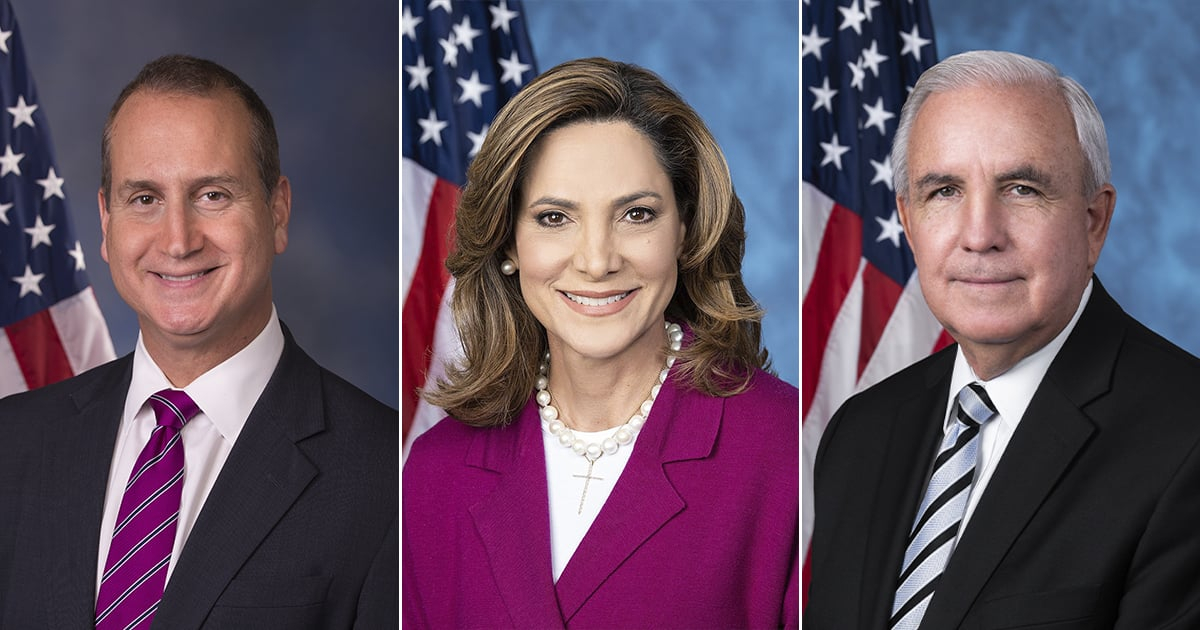On Thursday, Cuban-American congress members Mario Díaz-Balart, María Elvira Salazar, and Carlos Giménez signed a letter warning about the dangers posed by enforcers of the Cuban regime entering U.S. territory.
On the social media platform X, Díaz-Balart shared the letter addressed to Secretary of State Antony Blinken and Secretary of Homeland Security Alejandro Mayorkas, expressing their outrage over Cuban regime operatives and human rights abusers, such as prosecutor Rosabel Roca Sampedro, seeking entry into the U.S.
The publication highlighted that "she (Roca Sampedro) and regime operatives are responsible for the unjust imprisonment of #J11 protesters and pose a threat to our national security." It further stated that these human rights violators should not be granted such benefits while innocent protesters languish in Cuban prisons.
"As members of Congress with constituents personally affected by the brutality of the oppressive regime in Cuba, we write to ensure you are aware of the outrage caused by the attempt of Cuban national Rosabel Roca Sampedro to enter the United States. We urge you to carefully scrutinize those seeking entry to ensure they are not human rights violators," the letter from the Cuban-American congress members reads.
The letter also references a report published on the Martí Noticias website, detailing Roca Sampedro's direct involvement, as a prosecutor in the province of Camagüey, in sending at least four innocent individuals to prison with sentences exceeding three or four years for their participation in the July 11, 2021 protests.
The letter reminds the U.S. legislation, which grants the authority to impose sanctions in response to human rights abuses, including blocking the special privilege of entering the nation, as well as the Global Magnitsky Human Rights Accountability Act, which allows for denying entry under Section 212 of the Immigration and Nationality Act, Section 7031(c).
"In fact, the Biden Administration imposed specific sanctions on a handful of individuals for their role in persecuting the July 11th protesters immediately after the protests," the letter details.
Furthermore, it notes that "given the ongoing repression and human rights abuses happening in Cuba today, we must ensure that those acting on behalf of a cruel regime that actively opposes U.S. interests should not benefit from the extraordinary privilege of entering U.S. territory."
The letter serves as a necessary alert in light of the increasing number of regime enforcers seeking to reside in the U.S., such as Villa Clara judge Melody González Pedraza, who attended her first asylum hearing on Wednesday after arriving in the country with humanitarian parole and being denied entry by Tampa authorities.
Currently detained in Broward awaiting a judicial sentence, the jurist was involved in the conviction for "assault" of four young Cubans and sought political asylum after arriving with a travel permit and humanitarian parole in Tampa, according to Martí Noticias.
Due to constant denunciations from the Cuban exile community, regime enforcers have been prevented in time from benefiting from humanitarian parole to settle in the United States, as was the case with the son of Prime Minister Manuel Marrero Cruz or the former first secretary of the Communist Party in the Isla de la Juventud, Liván Fuentes Álvarez.
Concerns Over Cuban Regime Enforcers Entering the U.S.
In light of the recent warnings by Cuban-American congress members, several questions arise regarding the implications and measures against Cuban regime enforcers seeking entry into the United States.
What prompted the letter from the Cuban-American congress members?
The letter was prompted by concerns over Cuban regime operatives and human rights abusers, such as Rosabel Roca Sampedro, attempting to enter the U.S. and posing a threat to national security.
Who are the key figures involved in this situation?
The key figures include congress members Mario Díaz-Balart, María Elvira Salazar, and Carlos Giménez, as well as prosecutor Rosabel Roca Sampedro. Secretaries Antony Blinken and Alejandro Mayorkas were the recipients of the letter.
What legislation supports the congress members' concerns?
The concerns are supported by U.S. legislation that allows for the imposition of sanctions in response to human rights abuses, including the Global Magnitsky Human Rights Accountability Act, which denies entry to human rights violators.
